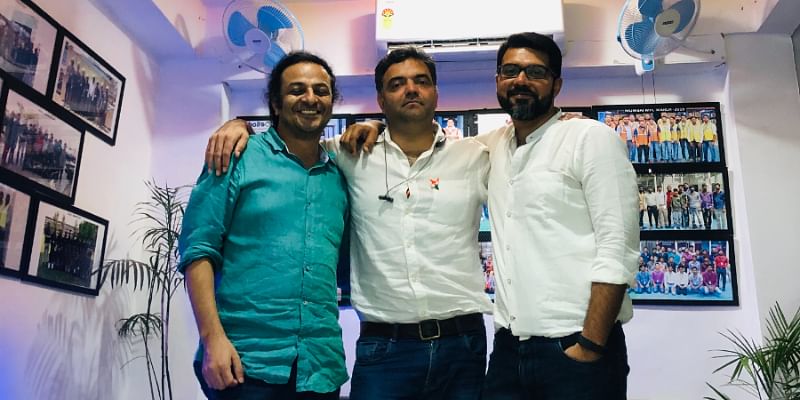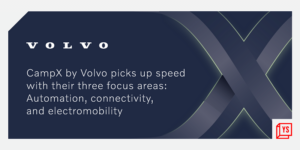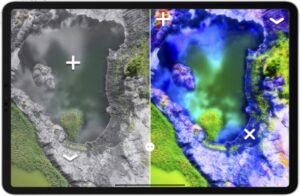The COVID-19 pandemic has accelerated the shift towards a more digital world, and many people have switched to ecommerce during this period. Due to this, the demand to have a strong supply chain infrastructure has increased.
However, designing efficient supply chain solutions and executing them can be a little tricky. That’s where brands need experts like New Delhi-based Holisol Logistics.
Founded in 2009 by former APL Logistics employees Manish Ahuja, Naveen Rawat, and Rahul S Dogar, Holisol offers tech-enabled end-to-end supply chain logistics platform for clients from fashion, lifestyle, and ecommerce, among others.
Its solutions include multi-channel fulfillment for B2B and B2C retail, integrated packaging, and logistics. It also offers returnable packaging solutions for auto components, agriculture, and the heavy engineering industry.
At present, Holisol works with popular brands such as Puma, Oriflame, Avon, Mango, Nykka, Urbanclap, Kama Ayurveda, Ashok Leyland, and Mahindra, among others.
Holisol’s multi channel fulfilment centre [Image Credit: Holisol Website]
The beginning and the shift
Rahul explains Holisol was launched initially as a supply chain management consulting organisation in 2009, but entered end-to-end management due to demand from clients alongside the consultation business.
“The initial idea was to provide consultations like helping clients design and set up the solution and train their people. We were taking responsibility for the execution of the solution for the first couple of years. Then our clients demanded we take care of the entire process instead of leaving after implementation. Realising the growth potential in the segment, we shifted our focus to provide an end-to-end solution,” he adds.
Rahul says while the consultation model required them to get into new projects regularly, this shift ensured a recurring channel of revenue and scaling-up opportunities.
“While providing our consulting services, we realised there is high potential in ecommerce, multi-channel fulfillment, integrated logistics, etc. By 2011, we decided to offer designing, implementation, and management services,” he explains.
Holisol claims to have created a multi-channel fulfillment network with more than 120 facilities across India. It is mainly focused on apparel, footwear, cosmetics, healthcare, and grocery segments. It also provides line-to-line integrated packaging and logistics solutions to automotive customers.
“Our value proposition is to operate like a customer’s extended arm, bringing our ability to understand the need and design-implement-manage solutions, which helps them achieve their business objectives,” he explains.
Naveen Rawat, Rahul S Dogar, and Manish Ahuja, Co-founders, Holisol [Image Credit: Holisol Logistics]
The business and growth
According to a report by MarketsandMarkets, the post-COVID 19 global supply chain management market size is expected to reach $41.7 billion by 2026 from $23.2 billion in 2020, growing at a CAGR of 10.3 percent.
Rahul explains the company has three main revenue streams: one is by offering warehousing and fulfillment services in terms of storage, inventory management, order processing, and delivery. Second is logistics tech products, and thirdly, integrated packaging and logistics services. The customers pay for using its packaging units, warehousing, and transportation services.
Growing a business does not always mean expansion and sometimes it can also mean rolling back services to focus mainly on the core services. Holisol implemented this mantra back in 2016 in order to maintain its growth.
Rahul says that in 2016, the company was looking to build a last-mile delivery network, but within a year it realised that the market was tough, and popular players already dominated the market. Realising this, Holisol rolled back to last-mile service and reiterated its focus on multi-channel fulfillment, packaging, and logistics.
According to the last available RoC filing, the company reported consolidated revenue of Rs 128 crore for the year which ended in March 2019.
Speaking about revenue, Rahul says, “On an average, every three to four years we have had a flat year in terms of revenue and we have taken that time to consolidate our operations, reflect, and grow again. That is how we have been building our company.”
The co-founder also explains that Holisol’s aim is to become an extended logistics arm for businesses and help them manage the supply chain efficiently.
Like any other business, Holisol too faced its fair share of challenges. Starting up Holisol did not find many people understand multi-user facilities and re-usable packaging concepts. Apart from this, the company also faced challenges in hiring the right team and supply chain professionals.
Speaking about the trends amid COVID-19 pandemic, the co-founder reveals that the demand mainly moved from B2B businesses to B2C businesses.
At present, the supply chain segment in India has several notable players such as BlackBuck and Rivigo, among others.
Illustration: YS Design
Funding and future plans
The co-founder reveals that Holisol was launched with an initial investment of Rs 5 lakh from each of the co-founders. Later, the team added Rs 12 lakh each to run it before raising their first round in 2013.
“We did our first angel round in 2013, raising $1.5 million. In 2015, we raised $10 million from CLSA Capital Partners and did a follow-on round of $10 million in 2017,” he says.
As of now, the company works with around 150 customers. “We want to have around 500 more customers in the next five years, but our aim is to become the main share of the pie for the client businesses for their supply chain and logistic needs,” he adds.
He says, Holisol is looking to expand its networks of fulfillment centers, especially in the hyperlocal segment. Currently, Holisol has about 70 fulfillment centers in the hyperlocal sector and it is looking to expand it to at least 170 to 200 centers by this year.
“In the long term, we want to build a logistics super grid across India with 100 fulfillment centers and 800 hyperlocal fulfillment centers. This logistics grid would be connected all across and enable our customers to store their inventory and move it within this network. It will be an entirely AI and ML-based system that will not only allow visibility for the clients but also provide predictive inputs to help them take better decisions,” he says.










